January 20, 2017 •
NYCU Video Digest – January 20, 2017
See what’s happening in government relations this week in our News You Can Use Video Digest. Enjoy!
See what’s happening in government relations this week in our News You Can Use Video Digest. Enjoy!
January 20, 2017 •
Denver City Council Delays Ethics Changes
The Denver City Council was expected to accept ethics changes on January 17, but postponed the vote until February 21. New gift rules proposed by Councilman Kevin Flynn will impose a $300 limit per year on what officials and employees […]
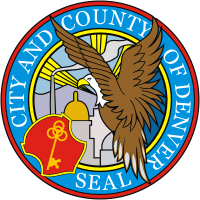 The Denver City Council was expected to accept ethics changes on January 17, but postponed the vote until February 21.
The Denver City Council was expected to accept ethics changes on January 17, but postponed the vote until February 21.
New gift rules proposed by Councilman Kevin Flynn will impose a $300 limit per year on what officials and employees may accept. Councilmembers voiced concerns about what gifts qualify.
To eliminate the confusion, officials are going to address their questions face-to-face before the official vote a month from now.
January 20, 2017 •
News You Can Use Digest – January 20, 2017
National: There Are Huge Holes in How the U.S. States Investigate Politicians’ Conflicts of Interest Washington Post – John Wihbey, Mike Beaudet, and Pedro Miguel Cruz | Published: 1/11/2017 Ethics and disclosure issues have been in the headlines […]

National:
There Are Huge Holes in How the U.S. States Investigate Politicians’ Conflicts of Interest
Washington Post – John Wihbey, Mike Beaudet, and Pedro Miguel Cruz | Published: 1/11/2017
Ethics and disclosure issues have been in the headlines lately as Donald Trump’s choices for Cabinet positions face Senate scrutiny. But what about state and local officials’ conflicts-of-interest? Researchers looked at what states require on their personal financial disclosure forms. Public officials and candidates for office must file these forms annually with ethics commissions or agencies in 47 states. The investigation found state requirements vary widely. When the forms were scored on fixed criteria, the researchers found that about 80 percent of states required little transparency, and few require enough to inform the public.
Federal:
After Trump Rebuke, Federal Ethics Chief Called to Testify Before House Lawmakers
Washington Post – Lisa Rein, Tom Hamburger, and Mike DeBonis | Published: 1/13/2017
A letter from U.S. Rep. Jason Chaffetz, chairperson of the House Oversight and Government Reform Committee, to Office of Government Ethics (OGE) Director Walter Shaub Jr. was viewed by many as a veiled threat to the OGE’s budget unless Shaub changes his rhetoric and approach. Shaub has questioned Donald Trump’s commitment to confront his potential conflicts-of-interest. In his letter, Chaffetz accused Shaub of “blurring the line between public relations and official ethics guidance,” and asked him to appear before lawmakers in a closed-door, transcribed interview. Ethics lawyers from both parties said the OGE plays an important role, and dismantling it or reducing its authority would be a blow to avoiding conflicts in a new administration and enforcing basic standards of ethics and transparency.
‘Kompromat’ and the Danger of Doubt and Confusion in a Democracy
New York Times – Amanda Taub | Published: 1/15/2017
Since the emergence of an unverified, salacious claims about Donald Trump, Americans have debated the ramifications of the arrival of “kompromat” as a feature of U.S. politics. The debates have often framed this practice as little more than a political form of blackmail, and one particular to Russia. In fact, kompromat is more than an individual piece of damaging information; it is a broader attempt to manufacture public cynicism and confusion in ways that target not just one individual but an entire society. And although this practice tends to be associated with Russia – the word kompromat is a portmanteau of the Russian words for “compromising” and “information” – it is a common feature of authoritarian and semi-authoritarian nations around the world.
The Trump Lobbying Purge That Wasn’t
Politico – Maggie Severns and Isaac Arnsdorf | Published: 1/18/2017
Despite Donald Trump’s efforts to keep lobbyists out of his administration, they have continued to offer policy advice, recommend job candidates, and contribute money to his transition team. And while they are barred from donating to the inaugural festivities, lobbyists have been collecting checks on Trump’s behalf. The loopholes in Trump’s restrictions are so widespread that many lobbyists said they have concluded his ethics rules are not really meant to change how business is done in Washington.
Trump’s Administration Will Regulate Trump’s Businesses, Raising Prospect of Conflicts
Washington Post – Rosalind Helderman, Drew Harwell, and Tom Hamburger | Published: 1/15/2017
When Donald Trump takes office, he will assume control of a federal bureaucracy with enormous power to bolster nearly every corner of his real estate, licensing, and merchandising empire, and enhance his personal fortune. Trump announced steps he and his lawyers said would provide adequate safeguards to separate his business from government. He said he will shift assets into a trust that will be managed by his sons. Providing few specifics, he promised no new foreign deals and said the company would adopt new internal systems to scrutinize potentially problematic domestic transactions. But Trump and his lawyers did not address how his administration will approach the range of regulatory actions and other decisions that could directly touch the business.
From the States and Municipalities:
California – State Watchdog Agency Investigating after Times Report on Political Donations
Los Angeles Times – Emily Alpert Reyes and David Zahniser | Published: 1/12/2017
The California Fair Political Practices Commission (FPPC) has launched an investigation into political contributions connected to the developer of a Harbor Gateway apartment project. The FPPC opened its probe after receiving a letter from a Los Angeles Times reader, who pointed to the newspaper’s investigation into donors with ties to Samuel Leung, developer of the Sea Breeze project. The Times reported that donors linked directly or indirectly to Leung gave more than $600,000 to support 11 Los Angeles-area politicians as Sea Breeze was being reviewed at City Hall. Several people who are listed as campaign contributors said they could not remember making those donations or denied doing so. Campaign finance experts said those responses raised questions about whether someone else had provided the money, a practice that would violate the law.
Colorado – Colorado Ethics Commission Puts Denver, Aurora and Other Cities on Notice in Turf Battle Over Gift Rules
Denver Post – Jon Murray | Published: 1/14/2017
The Colorado Independent Ethics Commission said it will consider hearing complaints against officials and employees if the panel finds their local ethics codes to be less restrictive than Amendment 41, which set a $50 gift limit (now $59) and banned even free drinks from lobbyists. That posture could affect Denver and more than 70 other home-rule cities and towns that were established by charters and have local ethics rules they view as sufficient to opt out of Amendment 41. Many of those lack similarly firm catch-all gift bans and set higher maximum values on allowed meals, event tickets and other things considered gifts – or do not set dollar limits at all.
Massachusetts – Could Lobbying Rules Have Saved Boston from Ill-Fated Grand Prix?
Boston Globe – Andrew Ryan | Published: 1/18/2017
After a year of no action and revelations about well-connected lobbyists pushing the Boston Grand Prix project forward, lobbying reform in the city is advancing. A member of Mayor Martin Walsh’s staff described the plan during a hearing of the city council committee hearing. For the first time, it would require lobbyists working to register and disclose where their payments come from, among other provisions. Failing to register could lead to daily fines.
Missouri – House Passes HB 60 to Limit Lobbyist Gifts
Missouri Times – Benjamin Peters | Published: 1/17/2017
The Missouri House passed a bill that sets a limit on lobbyist gifts to elected officials. House Bill 60 was approved by a vote of 149 to five. There are exceptions in the legislation. Lobbyists would be able to provide paid dinners to the entire General Assembly, providing they give a 72-hour notice and the meal is in Missouri. The bill now moves to the state Senate.
New Mexico – Leadership Shift Sparks Hope for Supporters of Campaign Finance Reform
New Mexio In Depth – Sandra Fish | Published: 1/15/2017
Critics say some provisions of New Mexico’s campaign finance law are unconstitutional and therefore unenforceable. Inconsistencies and loopholes in the statute make following the trail of money in politics difficult. And the law fails to acknowledge the recent rise of money flowing into campaigns from independent groups. But following years of attempting to update the campaign finance law, 2017 could be the year for reform, with a new secretary of state and new legislative leaders.
New Mexico – Will Independent Ethics Oversight Catch On in 2017?
New Mexico In Depth – Trip Jennings | Published: 1/16/2017
New Mexico lawmakers over the last decade have balked at creating an independent ethics commission even as a parade of elected and appointed public officials stood accused of corruption and, in some cases, were convicted of crimes. Viki Harrison, executive director of Common Cause New Mexico and a perennial supporter of ethics legislation, came up with an analogy: “Groundhog Day,” a movie in which the main character is forced to repeat the same day over and over again. Harrison hopes the 2017 legislative session will break the cycle, and on the surface the odds in Santa Fe appear favorable.
North Dakota – How a Mother-in-Law Inspired a Bill to Protect Drivers
Washington Post – Cleve Wootson Jr. | Published: 1/17/2017
Proposed legislation in North Dakota would protect some drivers from the legal consequences of running over a pedestrian protester. Rep. Keith Kempenich said his bill is a response to demonstrators blocking a highway as part of a protest over the proposed North Dakota Access pipeline. It is part of a slew of legislative measures that Republican lawmakers have written to combat the protests they say have disrupted life in and around the Standing Rock Sioux Indian Reservation. “This bill puts the onus on somebody who’s made a conscious decision to put themselves in harm’s way; you can protest all you want, but you can’t protest up on a roadway – it’s dangerous for everybody,” said Kempenich.
Pennsylvania – DA Williams Fined $62,0000 for Ethics Violations
Philadelphia Inquirer – Claudia Vargas | Published: 1/17/2017
Philadelphia District Attorney Seth Williams must pay $62,000 in fines for failing to disclose gifts and source of income, according to a settlement approved by the city’s Board of Ethics. The penalty is the largest imposed by the board in its 10-year history. The agreement also requires Williams to pay another $2,840, the value of the prohibited gifts he accepted. In August, Williams amended his statements of financial interests for 2010 to 2015, listing $160,050 in previously unreported gifts, including home repairs, airfare, and lodgings for vacations, cash, and gift cards, and Philadelphia Eagles sideline passes.
Tennessee – House Lawmakers Must Disclose Political Junkets
The Tennessean – Joel Ebert | Published: 1/12/2017
The Tennessee House adopted a new ethics rule that requires lawmakers to disclose any expense-paid travel out of the state that is valued at more than $100. The Legislature has long posted the costs of state-paid travel on its website, but trips paid for by private parties did not have to be publicly disclosed. The change follows reports by The Tennessean about a five-day “”act finding” mission to Europe paid by a Republican donor about what he calls the dangers of radical Islam, and two trips for lawmakers paid for by school voucher advocates. Those trips did not have to be reported because they were not paid for by lobbyists.
Virginia – Lengthy New Ethics Bill Targets Redskin Tickets Loophole
The Daily Press – Travis Fain | Published: 1/16/2017
The General Assembly will tinker with Virginia’s ethics laws for the fourth year in a row, zeroing in, among other things, on a loophole that lets officials accept free football tickets. The bills also include a long list of other tweaks, many meant to simplify the implementation of reforms that lawmakers first passed in 2014 as a response to former Gov. Bob McDonnell’s gift scandal. One change would exempt meals provided by non-profits at conferences from the state’s $100 gift limit. Another would clarify that legitimate birthday gifts from personal friends do not violate the cap, even if that friend is a lobbyist.
 State and Federal Communications produces a weekly summary of national news, offering more than 60 articles per week focused on ethics, lobbying, and campaign finance.
State and Federal Communications produces a weekly summary of national news, offering more than 60 articles per week focused on ethics, lobbying, and campaign finance.
January 19, 2017 •
Thursday Government Relations News Roundup
Lobbying “The Trump Lobbying Purge That Wasn’t” by Maggie Severns and Isaac Arnsdorf for Politico Colorado: “Denver City Council Committee Stalls Vote Again on Ethics Changes” by Jon Murray for Denver Post Massachusetts: “Could Lobbying Rules Have Saved Boston from […]
 Lobbying
Lobbying
“The Trump Lobbying Purge That Wasn’t” by Maggie Severns and Isaac Arnsdorf for Politico
Colorado: “Denver City Council Committee Stalls Vote Again on Ethics Changes” by Jon Murray for Denver Post
Massachusetts: “Could Lobbying Rules Have Saved Boston from Ill-Fated Grand Prix?” by Andrew Ryan for Boston Globe
Missouri: “House Passes HB 60 to Limit Lobbyist Gifts” by Benjamin Peters for Missouri Times
South Dakota: “Senators Reluctantly Allow Lobbyists to Stay” by Dana Ferguson for Sioux Falls Argus Leader
Campaign Finance
“SEC Settles with 10 Public Fund Money Managers Over Pay-to-Play Violations” by Hazel Bradford for Pensions & Investments
Ethics
South Carolina: “Lt. Gov. Henry McMaster Paying Off Ethics Penalties Before Becoming Governor” by Andy Shain for Charleston Post & Courier
Texas: “State Rep. Dawnna Dukes Indicted by Grand Jury” by Alex Samuels for Texas Tribune
Elections
Kansas: “Kobach Seeks Authority for Bifurcated Elections; Downplays Issue of Missing Registrations” by Peter Hancock for Lawrence Journal World
Legislative Issues
“How a Mother-in-Law Inspired a Bill to Protect Drivers” by Cleve Wootson Jr. for Washington Post
January 18, 2017 •
Ethics Bill Passes Missouri House
Ethics reform legislation passed the Missouri House Tuesday afternoon with wide bipartisan support. House Bill 60 would prohibit lobbyists and lobbyist principals from making expenditures for state public officials or for their staff, spouses, or dependent children. An exception would […]
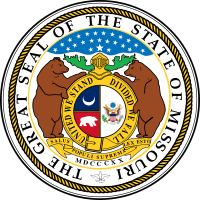 Ethics reform legislation passed the Missouri House Tuesday afternoon with wide bipartisan support.
Ethics reform legislation passed the Missouri House Tuesday afternoon with wide bipartisan support.
House Bill 60 would prohibit lobbyists and lobbyist principals from making expenditures for state public officials or for their staff, spouses, or dependent children.
An exception would remain for event expenditures if all members of the Legislature or all statewide officials are invited in writing. For clarity, the bill would subsequently remove any unnecessary lobbyist reporting requirements.
The bill now moves to the Senate for consideration.
January 18, 2017 •
Identification Badges Required for Alabama Lobbyists
According to a memorandum from the Alabama House Bill Clerk, lobbyists and state agency representatives will be issued identification badges. After registering with the Ethics Commission, a lobbyist or state agency representative must sign up with the Alabama House to […]
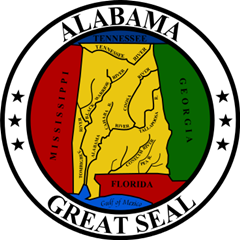 According to a memorandum from the Alabama House Bill Clerk, lobbyists and state agency representatives will be issued identification badges.
According to a memorandum from the Alabama House Bill Clerk, lobbyists and state agency representatives will be issued identification badges.
After registering with the Ethics Commission, a lobbyist or state agency representative must sign up with the Alabama House to receive the new badges.
Badges may be acquired by calling House Bill Clerk Dildred Bass at (334) 242-7616, or in-person at Bass’s office located in the Alabama State House, Office of the Clerk, Room 504-B.
January 18, 2017 •
Wednesday Government Relations News Roundup
Lobbying Michigan: “From Lawmaker to Lobbyist. Should the State Slow Down the Revolving Door?” by Craig Mauger and Ted Roelofs for Bridge Magazine Campaign Finance California: “La Jolla Car Dealer Sentenced for Role in Funneling Illegal Contributions to San Diego […]
 Lobbying
Lobbying
Michigan: “From Lawmaker to Lobbyist. Should the State Slow Down the Revolving Door?” by Craig Mauger and Ted Roelofs for Bridge Magazine
Campaign Finance
California: “La Jolla Car Dealer Sentenced for Role in Funneling Illegal Contributions to San Diego Mayor’s Race” by Greg Moran for San Diego Union Tribune
Ethics
“Trump’s Cabinet Pick Invested in Company, Then Introduced a Bill to Help It” by Manu Raju for CNN
Arkansas: “North Little Rock Attorney Says No Ethics Violation in Dallas Cowboys Tickets Given to Police Officers” by Jake Sandlin for Arkansas Online
Iowa: “Kent Sorenson Sentenced to 15 Months in Prison for Role in Caucus Scandal” by Grant Rodgers for Des Moines Register
New Mexico: “Will Independent Ethics Oversight Catch On in 2017?” by Trip Jennings for New Mexico In Depth
Pennsylvania: “DA Williams Fined $62,0000 for Ethics Violations” by Claudia Vargas for Philadelphia Inquirer
Virginia: “Lengthy New Ethics Bill Targets Redskin Tickets Loophole” by Travis Fain for The Daily Press
Elections
“Rolling in the Red Carpet: Many Pennsylvania Avenue firms to ignore Trump parade” by Stephanie Mansfield for Washington Times
January 17, 2017 •
Los Angeles Addresses Political Contributions from Real Estate Developers
Five City Council members recently asked the Los Angeles Ethics Commission to address the issue of real estate developers making political contributions. Developers can appear to be benefiting when elected officials they’ve supported grant them land-use perks such as zoning […]
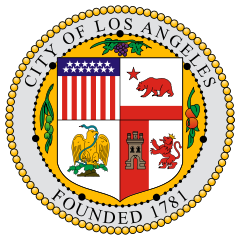 Five City Council members recently asked the Los Angeles Ethics Commission to address the issue of real estate developers making political contributions.
Five City Council members recently asked the Los Angeles Ethics Commission to address the issue of real estate developers making political contributions.
Developers can appear to be benefiting when elected officials they’ve supported grant them land-use perks such as zoning exemptions.
This campaign finance reform initiative focuses on restricting donations specifically from developers, contractors, and subcontractors whose projects are being reviewed by the city.
January 17, 2017 •
Corpus Christi Considering New Ethics Code Recommendations
Corpus Christi, Texas City Council will meet Tuesday to discuss new recommendations to the ethics code to further tighten rules for City Council members. The Council unanimously approved the new code during a first vote last week. If approved on […]
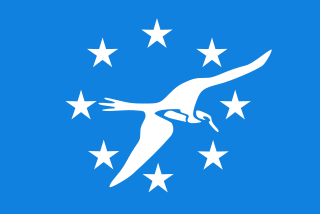 Corpus Christi, Texas City Council will meet Tuesday to discuss new recommendations to the ethics code to further tighten rules for City Council members. The Council unanimously approved the new code during a first vote last week.
Corpus Christi, Texas City Council will meet Tuesday to discuss new recommendations to the ethics code to further tighten rules for City Council members. The Council unanimously approved the new code during a first vote last week.
If approved on the second vote, it will be formally adopted by City Council. If adopted, the modified code would ban council members from appointing people to city committees and boards if the appointee contributed more than $2,700 to the council member’s campaign in the previous election. This would not ban the contributor from appointment, but would require a council member who did not receive contributions meeting the threshold to appoint the person.
Additionally, the prospective code broadens who falls within what is called the circle of influence and indicates a conflict of interest if a person with a specific relationship to a council member would profit from a council member’s vote. The current circle of influence includes direct family members but could be expanded to cover employers of family members and household members if the new code is adopted.
January 17, 2017 •
Texas Legislators Push for Ethics Reform
Legislators will attempt to pass a major ethics reform for the second time after their effort during the 2015 legislative session failed. The plan gained wide spread support in 2015 but was ultimately defeated in the House due to a […]
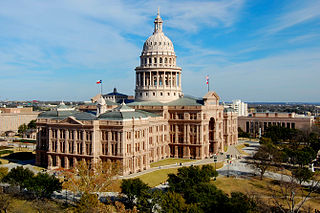 Legislators will attempt to pass a major ethics reform for the second time after their effort during the 2015 legislative session failed. The plan gained wide spread support in 2015 but was ultimately defeated in the House due to a provision increasing donor disclosure requirements for dark money groups.
Legislators will attempt to pass a major ethics reform for the second time after their effort during the 2015 legislative session failed. The plan gained wide spread support in 2015 but was ultimately defeated in the House due to a provision increasing donor disclosure requirements for dark money groups.
The new reform package, Senate Bill 14, has four main provisions to:
- Prohibit politicians convicted of felony corruption charges from collecting state pensions
- Require disclosure if companies a lobbyist is tied to have received government contracts or served as bond counsel to a governmental entity
- Decrease the amount of money lobbyists can spend on food and drinks for legislators without triggering disclosure
- Ban registered lobbyists from running for elected office
Sen. Van Taylor who is sponsoring Senate Bill 14 has said reform is needed beyond the provisions of the reform package and will continue to file additional ethics bills. While Senate Bill 14 has not yet been filed, Taylor has filed Senate Bill 137 aiming to prohibit state agencies from using state funds to employ a person who is registered as a lobbyist or who engages in lobbying activities.
Gov. Greg Abbott supports the passage of an ethics package.
Photo of the Texas State Capitol By LoneStarMike via Wikimedia Commons
January 17, 2017 •
Several Ethics Bills Introduced in New Mexico
New Mexico lawmakers have recently introduced several ethics bills. House Bill 119 would make it unlawful for a state legislator or legislative candidate to solicit or accept a contribution, even absent any political purpose. House Bill 73 seeks to create […]
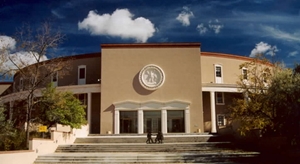 New Mexico lawmakers have recently introduced several ethics bills.
New Mexico lawmakers have recently introduced several ethics bills.
House Bill 119 would make it unlawful for a state legislator or legislative candidate to solicit or accept a contribution, even absent any political purpose.
House Bill 73 seeks to create a two-year revolving door provision prohibiting former statewide elected officials, public regulation commissioners, legislators, and cabinet secretaries from accepting compensation as lobbyists for a period of two years after terminating their service. The bill would also prohibit a lobbyist employer from compensating any of the aforementioned persons during the two-year period.
State Sen. Daniel A. Ivey-Soto introduced Senate Bill 72, also known as the Public Accountability Act (PAA). If passed, the PAA would create the Public Accountability Board (PAB) with enforcement powers over the compliance provisions of various public acts including, but not limited to, those related to campaign finance reporting, lobbying, public accountability, ethics, and procurement.
The PAB would serve as an adjunct agency with the secretary of state, members of the board of commissioners of the state bar, the governor, and the chief justice of the supreme court each appointing three members, respectively. Among its provisions, the act amends the definition of lobbyist and prohibits lobbyists and government contractors from serving on the PAB. If passed, several of the sections would be effective as soon as July 1, 2017, while the PAB would not gain enforcement powers over many of the listed acts until July 1, 2019.
January 17, 2017 •
Tuesday Government Relations News Roundup
Campaign Finance “Corporations Open the Cash Spigot for Trump’s Inauguration” by Nicholas Fandos for New York Times New Mexico: “Leadership Shift Sparks Hope for Supporters of Campaign Finance Reform” by Sandra Fish for New Mexio In Depth Wisconsin: “Former Wisconsin […]
 Campaign Finance
Campaign Finance
“Corporations Open the Cash Spigot for Trump’s Inauguration” by Nicholas Fandos for New York Times
New Mexico: “Leadership Shift Sparks Hope for Supporters of Campaign Finance Reform” by Sandra Fish for New Mexio In Depth
Wisconsin: “Former Wisconsin Judges Seek Rules on Campaign Donations” by Patrick Marley and Bill Glauber for Milwaukee Journal Sentinel
Ethics
“Trump’s Administration Will Regulate Trump’s Businesses, Raising Prospect of Conflicts” by Rosalind Helderman, Drew Harwell, and Tom Hamburger for Washington Post
California: “Sweetwater School District Gets $8.2 Million in Settlement Over Pay-to-Play Scandal” by Greg Moran for San Diego Union Tribune
Colorado: “Colorado Ethics Commission Puts Denver, Aurora and Other Cities on Notice in Turf Battle Over Gift Rules” by Jon Murray for Denver Post
New Jersey: “Christie Selects Campaign Donor as New Ethics Watchdog” by Salvador Rizzo for Bergen Record
Canada: “Ethics Watchdog Opens Probe into Trudeau’s Vacation at the Aga Khan’s Island” by Alex Ballingall for Toronto Star
Elections
“‘Kompromat’ and the Danger of Doubt and Confusion in a Democracy” by Amanda Taub for New York Times
January 16, 2017 •
Florida House Considering Constitutional Amendment to Prevent Revolving Door
A proposed amendment to the Florida Constitution seeks to slow the revolving door between public officials and lobbyists. Currently, members of the legislature, statewide officials, and appointed officials must wait two years before lobbying on behalf of a principal. The […]
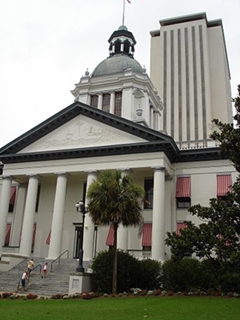 A proposed amendment to the Florida Constitution seeks to slow the revolving door between public officials and lobbyists.
A proposed amendment to the Florida Constitution seeks to slow the revolving door between public officials and lobbyists.
Currently, members of the legislature, statewide officials, and appointed officials must wait two years before lobbying on behalf of a principal.
The amendment, PCB 17-01, would extend the cooling-off period to six years. The change, proponents say, would prevent officials from ingratiating themselves to lobbyists in hopes of landing a high paying position after leaving office.
The amendment is being considered by the House Public Integrity and Ethics Committee and will be voted on at the Committee’s next meeting.
January 16, 2017 •
Washington State Lawmakers Introduce Ethics Bills
Lawmakers in Washington have introduced two bills to enhance campaign finance disclosure and ethics laws. Senate Bill 5108 aims to increase transparency of “gray money” by limiting political action committees from receiving 70 percent or more of their contributions from […]
 Lawmakers in Washington have introduced two bills to enhance campaign finance disclosure and ethics laws.
Lawmakers in Washington have introduced two bills to enhance campaign finance disclosure and ethics laws.
Senate Bill 5108 aims to increase transparency of “gray money” by limiting political action committees from receiving 70 percent or more of their contributions from other political committees.
Another proposal, House Bill 1159, seeks to establish revolving door provisions requiring former state officials to take a yearlong “cooling-off” period before they can become lobbyists.
State and Federal Communications, Inc. provides research and consulting services for government relations professionals on lobbying laws, procurement lobbying laws, political contribution laws in the United States and Canada. Learn more by visiting stateandfed.com.

